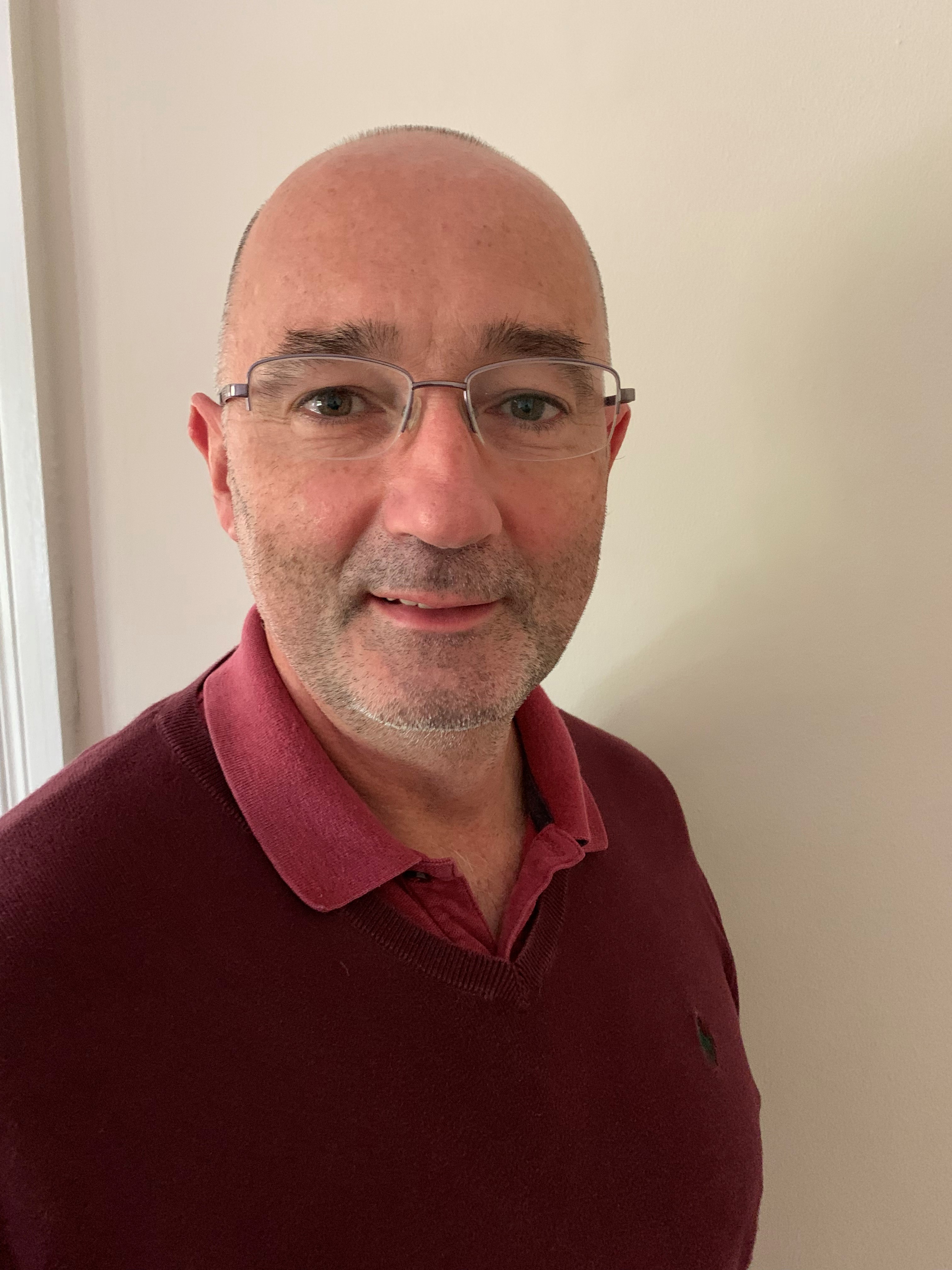2020 Annual Meeting Webinar Series
Webinars are free for SBM members and $45 per webinar for non-members. Join SBM today for free webinar access.
These presentations are also featured in an Annals of Behavioral Medicine Special Issue. Take a look today! SBM members have free access to the journal. The special issue could not have been completed without the hard work and dedication of 2020 Annual Meeting Program Chair L. Alison Phillips, PhD, and Annals Editor-in-Chief Tracey A. Revenson, PhD.
Presidential Keynote: Accelerating our Science - Provocative Questions in Behavioral Medicine
When: Tuesday, May 26, 12 pm ET
Presenter: Michael Diefenbach, PhD
|
Description: What does behavioral medicine of the future look like? What kind of research will we be doing? SBM President Michael Diefenbach, PhD, will present the results of the Provocative Questions in Behavioral Medicine initiative. This crowdsourced multi-stage effort involved the full SBM membership and will provide a glimpse into the future of behavioral medicine. Attendees will be informed about the methodology and results of the provocative questions initiative. Attendees will learn about future directions of behavioral medicine and efforts we might undertake to meet future challenges. Dr. Diefenbach is a professor in the Departments of Medicine, Urology, and Psychiatry at Northwell Health and the School of Medicine at Hofstra/Northwell in New York. He is director of behavioral research in the Departments of Medicine and Urology, and academic director of the Faculty Research Career Development Program. He is a founding member of the Center of Health Innovation and Outcomes Research, and co-directs the Cancer Prevention and Control Program at the Monter Cancer Center. He has more than 20 years of federally funded research in behavioral medicine in the areas of treatment decision making, quality of life, and cancer prevention and control. He has published more than 80 peer reviewed articles and edited the Handbook of Medical Decision Sciences. |
|
Presidential Symposium: Management of Psychological Distress in Patients with Cancer - Are We Doing the Right Thing?
When: Friday, May 29, 12 pm ET
Presenters: Joost Dekker, PhD; Kristi Graves, PhD; Terry Badger, PhD, RN; and Michael Diefenbach, PhD
Description: Distress is highly prevalent among patients with cancer. In patients in the anti-tumor phase of treatment, the reported prevalence rate ranges from 18% to 52%. Identification and treatment of distress is a clinical priority, because distress is a risk factor for non-adherence with medical treatment and for a poor outcome in physical, mental and social life domains. Currently, the dominant care paradigm for the management of distress is ‘distress screening and referral for the provision of psychosocial care’. Dissemination and implementation science may guide efforts to optimize the design, implementation, and evaluation of distress screening programs. On the other hand, basic assumptions underlying the paradigm can be questioned. These assumptions concern the nature of support needed in coping with emotions. The overall goal of this symposium is to explore possibilities to improve psychosocial cancer care based on the screening paradigm, and to explore the need for an alternative care paradigm.
The first presenter will explore possibilities to improve psychosocial cancer care based on the screening paradigm, drawing on dissemination and implementation science. The second presenter will present recent data on the actual implementation of screening, addressing barriers and facilitators. The third presenter will present an alternative care paradigm, called ‘supporting resilience and case finding’. The discussant will comment on how to advance the science of managing psychological distress in patients with cancer.
Ruha Benjamin, PhD, will Take Us Beyond Buzzwords
When: Tuesday, June 2, 12 pm ET
Session title: Beyond Buzzwords: Innovation, Inequity, and Imagination in the 21st Century
|
A little about her talk: From precision medicine to predictive algorithms, science and technology seek to address a variety of human problems by producing data and tools to help us understand our world and ourselves. But without careful consideration of the social dimensions of innovation, we risk reinforcing longstanding forms of inequality and injustice, and even producing new forms of discrimination that are hidden behind a veneer of technological neutrality. In this talk, Ruha Benjamin, PhD, will examine a range of contemporary issues at the nexus of data and democracy—from DNA databases to targeted advertising—so we can think together about the social values embedded in these platforms and systems. Her aim is to expand our collective imagination around what counts as relevant and meaningful to scholarly and public debates, so a greater array of people can shape the world we inhabit. Dr. Benjamin is a sociologist who has studied the social dimensions of science, technology, and medicine for the past 15 years. She has published three books and numerous articles on the topic. She is an associate professor in the Department of African American Studies at Princeton University, where she studies the social dimensions of science, technology, and medicine, race and citizenship, knowledge and power. She is also the founder of the JUST DATA Lab and a faculty associate in the Center for Information Technology Policy, Program on History of Science, Center for Health and Wellbeing, Program on Gender and Sexuality Studies, and Department of Sociology. She serves on the executive committees for the Program in Global Health and Health Policy and Center for Digital Humanities. Dr. Benjamin is the author of three books; People’s Science, Captivating Technology, and Race After Technology. |
|
Presidential Panel Discussion: Sharing your Findings: Strategies for Effective and Engaging Science Communication
When: Friday, June 5, 12 pm ET
Presenters: Berly McCoy, PhD, and Becky Mackelprang, PhD
Description: Without science communication, research findings stay in academia. Although training opportunities are growing, it is not yet common practice to teach scientists communication skills concurrently with research training. For those that recognize the importance of science communication, it is often difficult to know where to begin and how to incorporate an added skillset into an already demanding workload. The goal of this panel is to give attendants a practical set of actions they can take to get started in science communication and considerations to keep in mind before they begin engaging in science communication through writing, multimedia, and in person activities. External panelists with expertise in science communication will co-present on the panel. Each will share 1) their journey from science to science communication 2) the current projects they are focusing on and 3) their advice on how to get started communicating science to a particular audience. The panel discussion will include important concepts in communicating science such as understanding an audience, using storytelling as a tool to communicate, and reducing jargon, as well a myriad of resources available to scientists interested in improving their communication skills.
Kara Hall, PhD, will Help Us Forge Forward TogetherWhen: Tuesday, June 9, 12 pm ET Session title: Forging Forward Together: Transforming Scientific Practice to Accelerate Scientific Progress
Presidential Symposium: From Ideas to Interventions: A Review of Frameworks for Designing and Optimizing Health-Related Behavioral InterventionsWhen: Friday, June 12, 12 pm ET Presenters: Susan M. Czajkowski, PhD; Kate Guastaferro, PhD; Tianchen Qian, PhD; Susan Murphy, PhD; and Bonnie Spring, PhD
Description: Behavioral risk factors (e.g., tobacco use, adverse diet, sedentary lifestyles, overweight and obesity) are major contributors to chronic diseases such as cancer, cardiovascular disease, and diabetes. Designing more effective interventions for these risk factors is critical to accelerating the impact of behavioral medicine on disease incidence, progression and recovery. While there exist a number of frameworks and process models aimed at promoting the careful, systematic design and optimization of behavioral interventions, little guidance is available to compare key aspects of these models, understand their common and unique features, and aid in selecting the best approach for a specific research question. In this symposium, several approaches to designing and optimizing interventions for behavioral risk factors will be reviewed to promote greater knowledge of each individual framework, advance our understanding of commonalities and synergies between the frameworks, and allow for an informed choice on the part of investigators interested in developing and testing health-related behavioral interventions. The panel will include three speakers. The first speaker will discuss the Science of Behavior Change (SOBC) experimental medicine approach and the Obesity-Related Behavioral Intervention Trials (ORBIT) model for developing treatments for chronic diseases. The second speaker will then describe the Multiphase Optimization Strategy (MOST), and the third speaker will discuss an experimental design for informing the design of just-in-time adaptive interventions: Micro-Randomized Trials (MRTs). Finally, the discussant will identify commonalities and synergies among these frameworks as well as key differences that can help researchers choose which approach most benefits their research goals. Innovators will Explore Artificial IntelligenceWhen: Tuesday, June 16, 12 pm ET Session title: Artificial Intelligence in Medicine: Hope, Hype, or Harm? A little about this talk: In 2015, Stephen Hawking, Elon Musk, and dozens of the world’s top visionaries in artificial intelligence (AI) signed an open letter declaring “a broad consensus that AI research is progressing steadily, and that its impact on society is likely to increase.” Precisely because these capabilities are now expanding beyond the hypothetical, though, the letter went on to say “it is important to research how to reap its benefits while avoiding potential pitfalls.” The potential for both good and harm from these disruptive technologies is enormous. Understanding the future of these systems requires urgent, cross-disciplinary conversation. This panel will bring together three pioneering voices across the fields of computational science, behavioral medicine, and healthcare to identify the provocative questions that are urgently needed to guide the evolution of “intelligent systems” in medicine.
How do We Know what Works? Emulating Randomized Trials when Trials are Not AvailableWhen: Friday, June 19, 12 pm ET Presenter: Miguel Hernan, PhD
When randomized experiments are not feasible or available, causal effects are often estimated from non-experimental or observational databases. Therefore, causal inference from observational databases can be viewed as an attempt to emulate a hypothetical randomized experiment—the target experiment or target trial—that would quantify the causal effect of interest. This talk outlines an approach to observational causal inference that makes the target trial explicit. Riding the Wave of Digital Transformation in ScienceWhen: Tuesday, June 23, 12 pm ET. Presenter: Brad Hesse, PhD
Our rapidly changing digital ecosystem changes both the questions and answers we pursue in behavioral medicine. Attend this master lecture to follow the trail of digital connectivity in science from its early roots in the national “co-laboratories” of the human genome, to the “artificial intelligence winter” in medicine, to a supernova of accelerations (both good and bad) enabled by cloud computing, big data, machine learning, ubiquitous social media, the “Internet of Things," and computer-assisted precision medicine. In Pursuit of Principles that are Practical: How Integrating Mechanisms and Context will Advance the Study of Health Behavior ChangeWhen: Friday, June 26, 12 pm ET Presenter: Alexander Rothman, PhD
|














